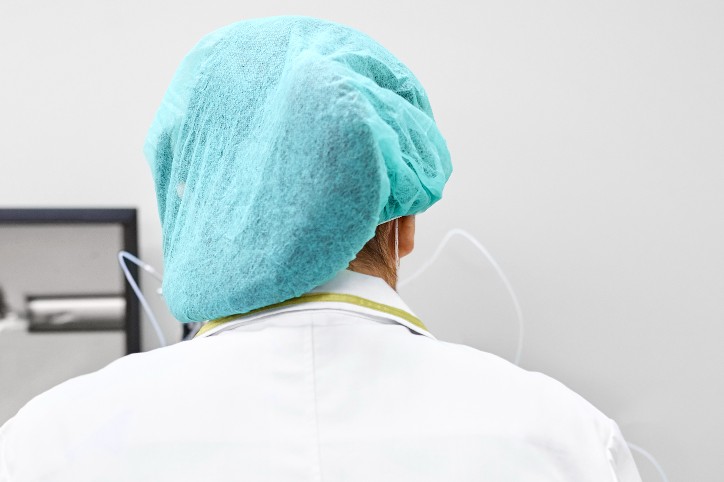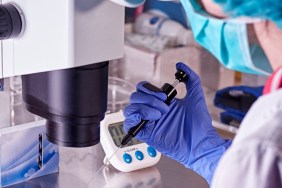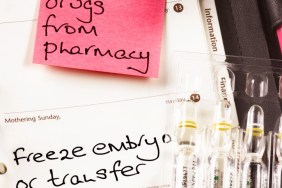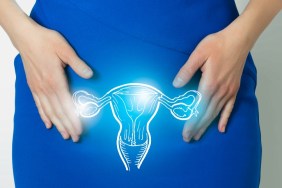IVF can be overwhelming, and that’s certainly true at first. When I started on my fertility treatment journey I didn’t know the first thing about IVF. Basically all I knew was that it involved injecting myself with hormones, which is why when it became clear that I needed it all I did was cry and cry and cry out of fear! Of course it’s easy for me to say it wasn’t as bad as I feared now that I have my son, but the truth is that while the needles may not have been as bad as I feared (and certainly not as bad as all the blood tests!), it was one of the toughest things I’ve ever done in my life.
I wish I was better informed when I started about my chances of success (I was told I’d be pregnant by the Jewish holidays the next month, meanwhile it took over three years for my successful pregnancy).
Given that fertility struggles affect so many of us I turned to Claire O’Neill, who founded FertilitySpace in 2020 with the aim of using fertility industry data to help women find the best fertility provider for their unique goals and make informed decisions while navigating the world of fertility treatment, to outline everything people on this journey need to know.
When should you reach out to a fertility specialist for help?
“There are guidelines that the American Society for Reproductive Medicine (ASRM) recommends for women who are struggling to conceive for when to go in for testing with a reproductive endocrinologist, which is a fertility specialist.
Fertility declines with age, so how soon to seek out an opinion from a fertility doctor depends on how old you are and how long you’ve been unsuccessful in trying to get pregnant.
Fertility testing with a reproductive endocrinologist is recommended after:
- 1 year of trying to conceive for women less than 35 years old
- 6 months of trying to conceive for women older than 35
- 3 months/immediately for women who are 40 years or older
Same-sex female couples, same-sex male couples, and single parents by choice who wish to have a biological child should reach out immediately to a reproductive endocrinologist at a fertility clinic so that they can begin the process of building their family.
It can take some time to find a sperm/egg donor or even longer to find a gestational surrogate, so the sooner you can get started on this process, the better.”
IVF (in vitro fertilization)
“The most well-known fertility treatment is IVF. It’s certainly more invasive and more expensive than the other two options, but also comes with a much higher chance of pregnancy from just one treatment cycle.
In IVF, the main difference is where the sperm and egg will be when fertilization happens. In the timed intercourse and IUI, fertilization would occur within the body like normal but in IVF, multiple eggs will actually be retrieved from your ovaries and fertilized in a dish in the embryology lab.
The primary type of medications you take for an IVF cycle are called gonadotropins and will cause multiple follicles to begin developing in your ovaries. The goal of IVF is to try to recruit multiple follicles so that you can attempt to fertilize multiple eggs in one round.
Not every egg leads to a baby, some eggs don’t fertilize and others don’t end up developing into a viable embryo. Because of this, your doctor tries to maximize your chance of success from IVF by retrieving as many eggs as possible.
The process of IVF takes about 2-3 weeks. We created an IVF timeline on FertilitySpace so that you can see what the typical steps are as part of those few weeks.
You will begin taking fertility medications which are mostly in the form of injections subcutaneously into your belly or intramuscularly into your glute muscle. The number of days you need to take fertility medications varies based on how your ovaries respond but it’s typical to take them for about 10 days.
During this time you’ll be going in for regular monitoring appointments where your doctor is tracking the growth of your follicles. Once the lead follicle is large enough, it’s time to take the trigger shot. You usually take the trigger shot at night and your egg retrieval is scheduled about 36 hours later, so it will take place in the early morning.
On the day of your egg retrieval, either your partner will be scheduled to produce a semen sample or a frozen vial of donor/partner sperm will be thawed. The sample is processed by an andrologist to remove any sperm that aren’t moving and leave only the sperm that are motile.
Once your doctor has completed the egg retrieval, an embryologist counts the number of eggs you have. At this point the eggs can be fertilized with the sperm. There are actually two different ways to do this. One is by what we call ‘standard insemination’ and the other is called ICSI, which stands for intracytoplasmic sperm injection.
In standard insemination, the eggs and sperm are placed in a dish overnight so that the sperm can swim to an egg and fertilize it.
In ICSI, an embryologist actually selects a sperm and injects it into the egg in order to fertilize it. This is often done in cases where there is a male factor infertility or if women are using previously frozen eggs.
The embryologist then checks the next day to see how many eggs were fertilized. The eggs that have fertilized are incubated and watched for about 5 to 6 days to see how well they develop.
On Day 5 or 6 of embryo development, your doctor will work with the embryology team to choose which embryo has the best chance of resulting in a healthy baby. They do this by evaluating which had the best rate of development, the best morphological grade, and in cases where the embryos were genetically tested, they also choose based on which embryos have the correct number of chromosomes needed for life.
At this point, an embryo can be transferred back into your uterus and two weeks later, you’ll be able to take a pregnancy test to find out if you’re pregnant. You also have the option of freezing embryos and doing a transfer in the future to try to get pregnant.
Hard to believe it’s all done in the space of about 3 weeks but there’s often a lot of preparation that comes in advance and during treatment, it can feel a lot longer.”
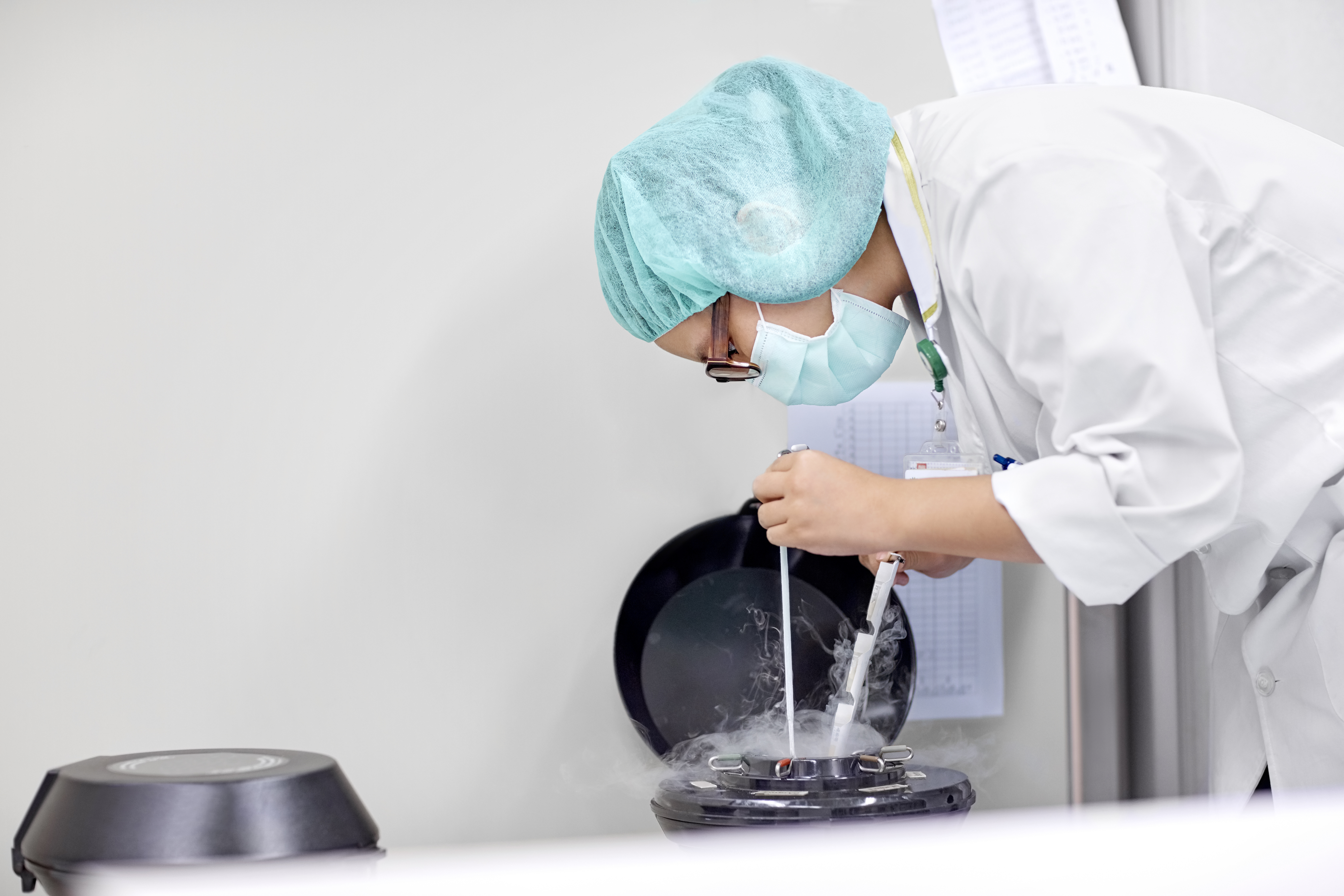
Chance of getting pregnant with IVF
“Your chance of getting pregnant from an IVF cycle depends on so many factors but a big one if your age. Some women will get pregnant from just one IVF cycle and even have a second child from an embryo she froze in the cycle as well, while others may need to undergo multiple IVF cycles in order to conceive. IVF is not a guarantee but it does help many couples have a baby.
The most recent national IVF data from the CDC reported that women less than 35 years old had a 52.7% success rate with IVF and declined steadily into a woman’s late 30’s with women older than 40 having a 7.9% success rate when using their own eggs.
If women are unsuccessful with IVF due to an age-related decline in egg quality, they still have options. Many women circumvent this issue by using donor eggs which have a success rate of roughly 50% per transfer. Donor eggs are from much younger, healthy women and can allow women who are older with poor egg quality to successfully carry a pregnancy.
If you’re interested in looking into what your chance of success with IVF might be, you can view IVF success rates for clinics in your area at FertilitySpace.
You can also read reviews from past patients and reach out to a clinic to schedule a consultation with one of their fertility doctors to see what your options are, discuss what treatment would make sense for you, and what your individual chance of conception looks like for each treatment option.”
